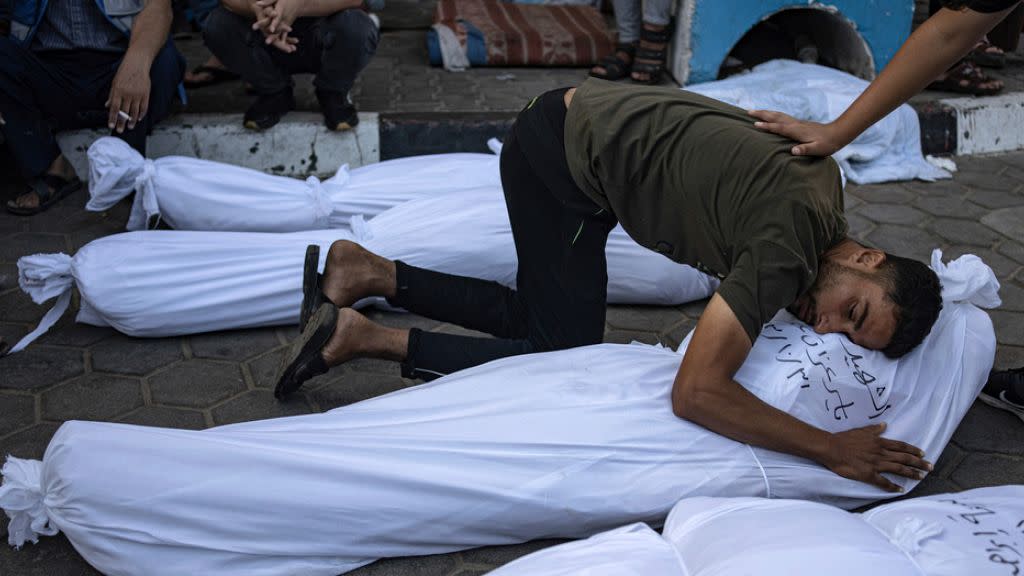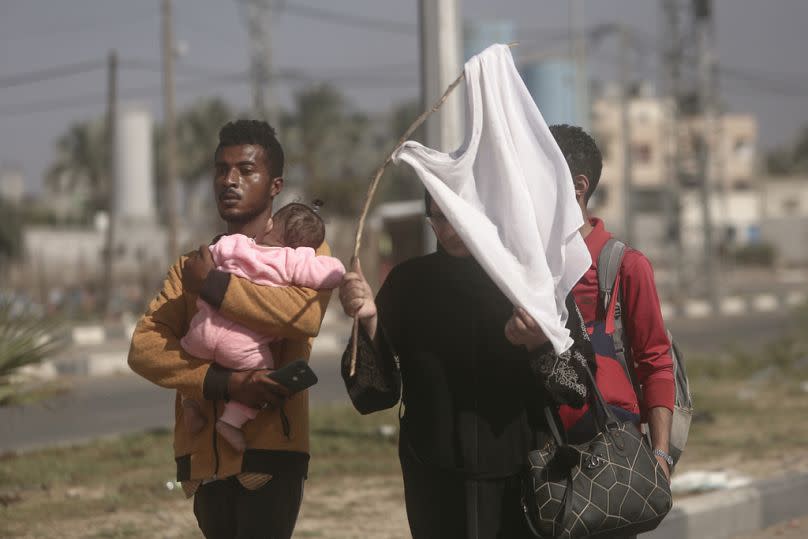Israel 'stealing organs' from bodies in Gaza, alleges human rights group

Israel's army has been accused of stealing organs from the dead in Gaza by an NGO, which called for an independent international investigation.
Euro-Med Human Rights Monitor said on Sunday it had "concerns" about possible organ theft from Palestinian corpses, following reports by medical professionals in Gaza who examined some bodies after they were released by the Israelis.
The NGO claimed it has documented Israeli forces confiscating dozens of dead bodies from the al-Shifa and Indonesian hospitals in northern Gaza, alongside others in the south.
They also claimed Israel exhumed and confiscated corpses from a mass grave that was dug more than 10 days ago in a courtyard at al-Shifa.
Medical professionals reportedly found vital organs, such as livers, kidneys and hearts, alongside cochleas and corneas, were missing, which the NGO called "evidence" of potential organ theft.
The Israeli Defence Force has been approached for comment.
Organ theft cannot be proven or disproven by forensic medical examination alone since multiple bodies underwent surgery prior to death, doctors at several Gaza hospitals were cited as saying by Euro-Med.
A full examination of the recovered corpses is not possible given the intense Israeli attacks on Gaza, they claimed. This follows comments by Palestinian health officials in Gaza that they can no longer even count the dead because the enclave's health system has collapsed.
Israel has long been accused of harvesting organs
Reports have circulated in recent years that Israel is unlawfully using Palestinian corpses.
In her book Over Their Dead Bodies, Israeli doctor Meira Weiss claimed organs were taken from dead Palestinians between 1996 and 2002 and used in medical research at Israeli universities and transplanted into Israeli patients’ bodies.
Jewish teachings permit organ transplantation and harvesting, with the need to save lives paramount over all other religious commandments.
A controversial Israeli television investigation in 2014 included confessions from high-ranking officials that skin was taken from the bodies of dead Palestinians and African workers to treat Israelis, such as soldiers with burn injuries.
In it, the director of the Israeli Skin Bank revealed the country's reserve of “human skin” reached 17 square meters - a huge number relative to Israel's population.

Israel is thought to be the biggest hub for the illegal global trade in human organs, according to a 2008 investigation by the American CNN network.
Euro-Med Monitor claimed Israel is one of the "world’s biggest hubs for the illegal trade of human organs under the pretext of 'security deterrence'”.
It urged the country to abide by "international law" and reiterated the "necessity of respecting and protecting the bodies of the dead during armed conflicts."
The 1949 Fourth Geneva Convention, which Israel has not ratified, requires combatants to respect the dignity of the dead, including preventing despoiling, mutilation, or any disrespectful treatment of their bodies.
Palestinian bodies reportedly being withheld by Israeli forces
Euro-Med also accused Israel of holding the remains of dozens of Palestinians killed during its military operation in Gaza since 7 October, though some have been handed over to the International Committee of the Red Cross.
This is considered by some a punitive practice to deny families the chance of burying their loved ones.
Israel has a long history of holding onto the bodies of dead Palestinians, Euro-Med Monitor said.
It claimed Israel holds the remains of at least 145 Palestinians in its morgues and approximately 255 in its so-called “Numbers Cemetery”, a site near the Jordanian border that is off-limits to the public.
Refusing to hand over the bodies of the dead to grieving families for burial may amount to collective punishment, which again is forbidden under the Fourth Geneva Convention, Euro-Med monitor pointed out.
Burying the dead is considered a fundamental and significant religious duty in Islam, which carries deep cultural and spiritual significance.


